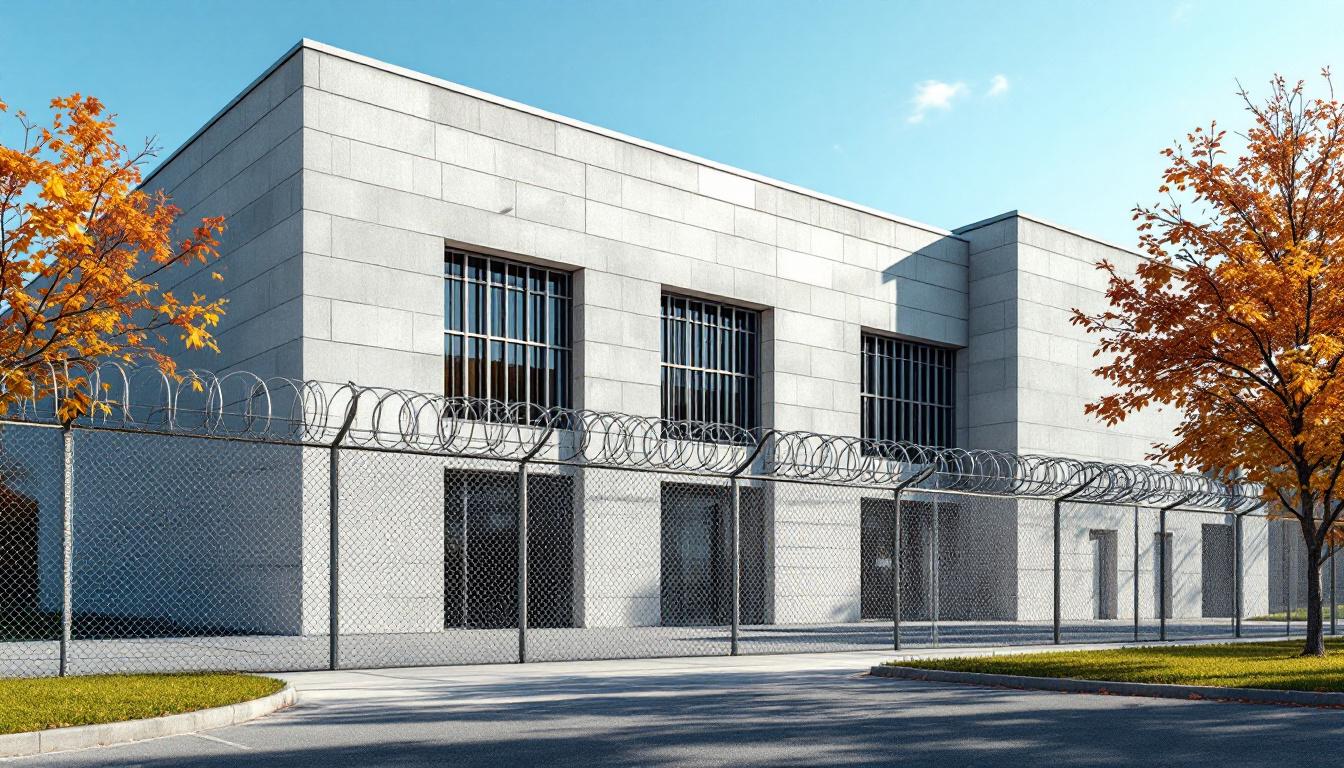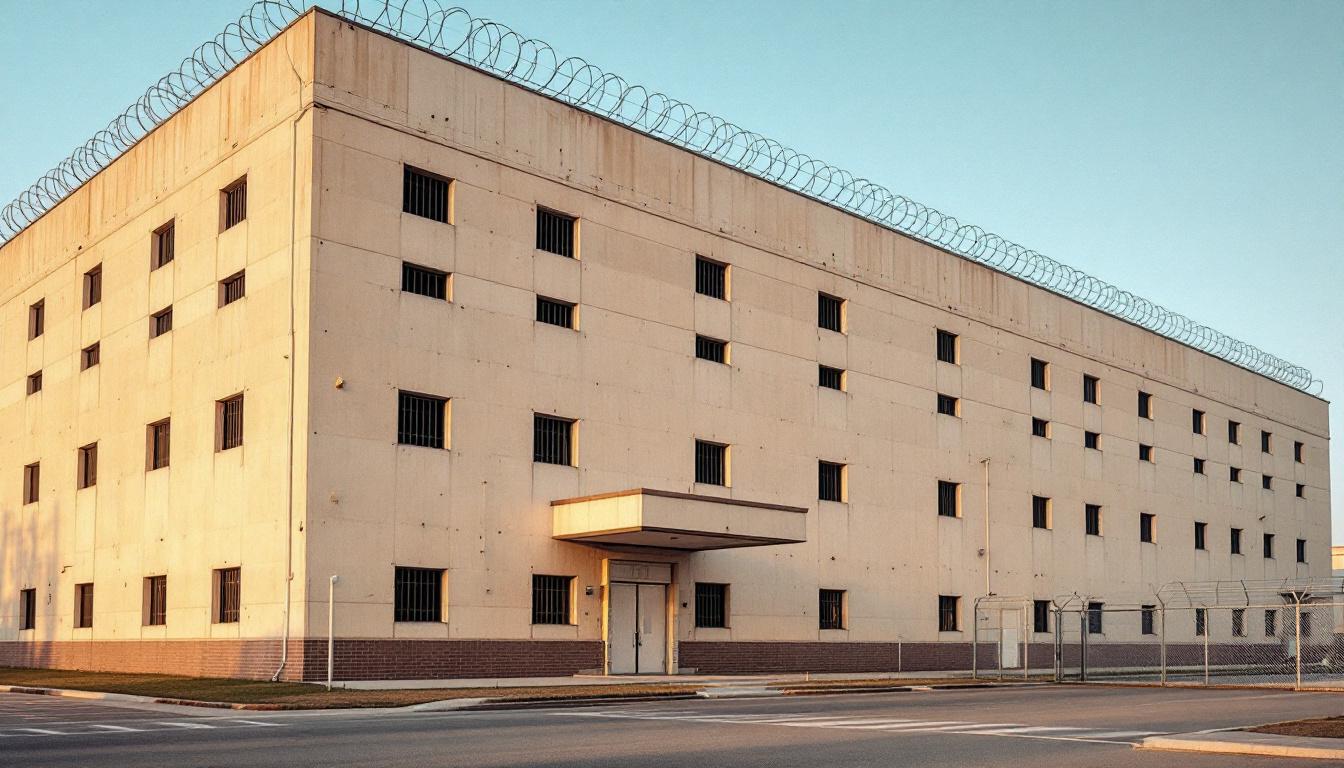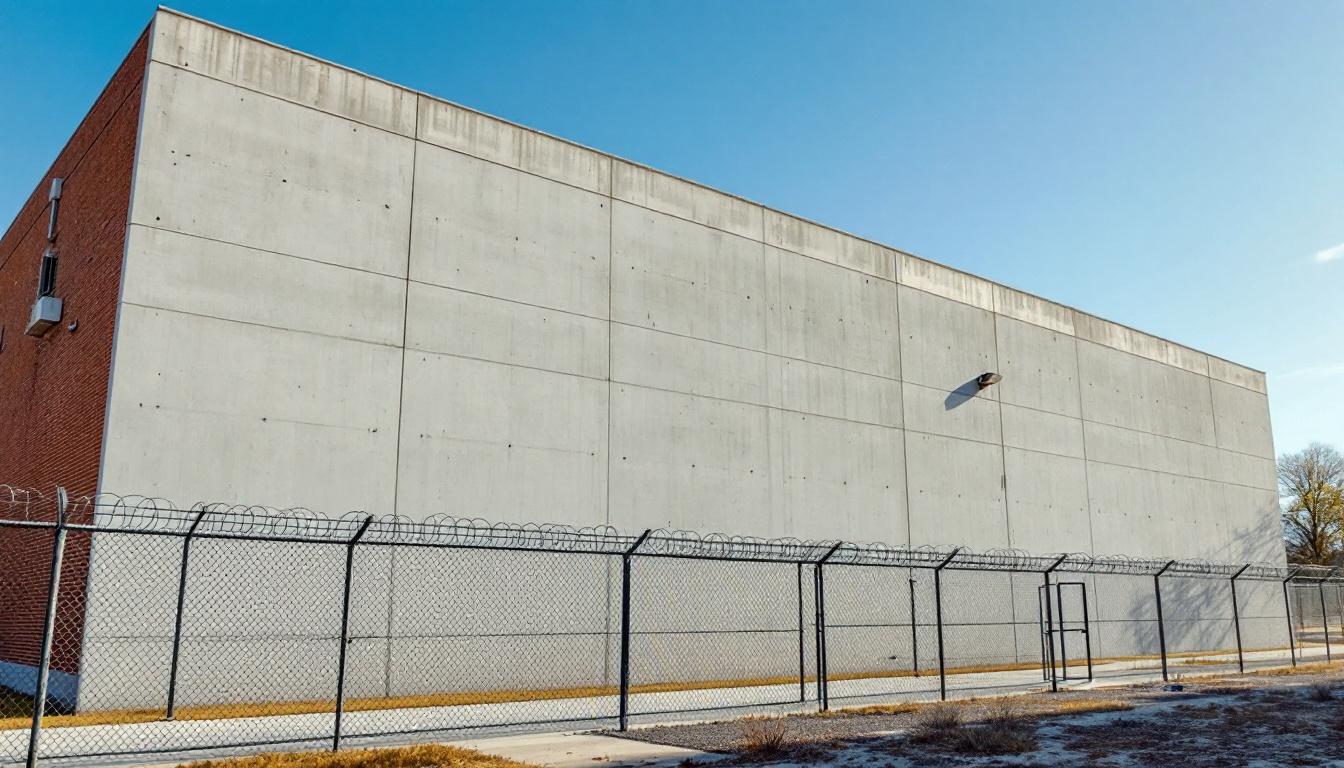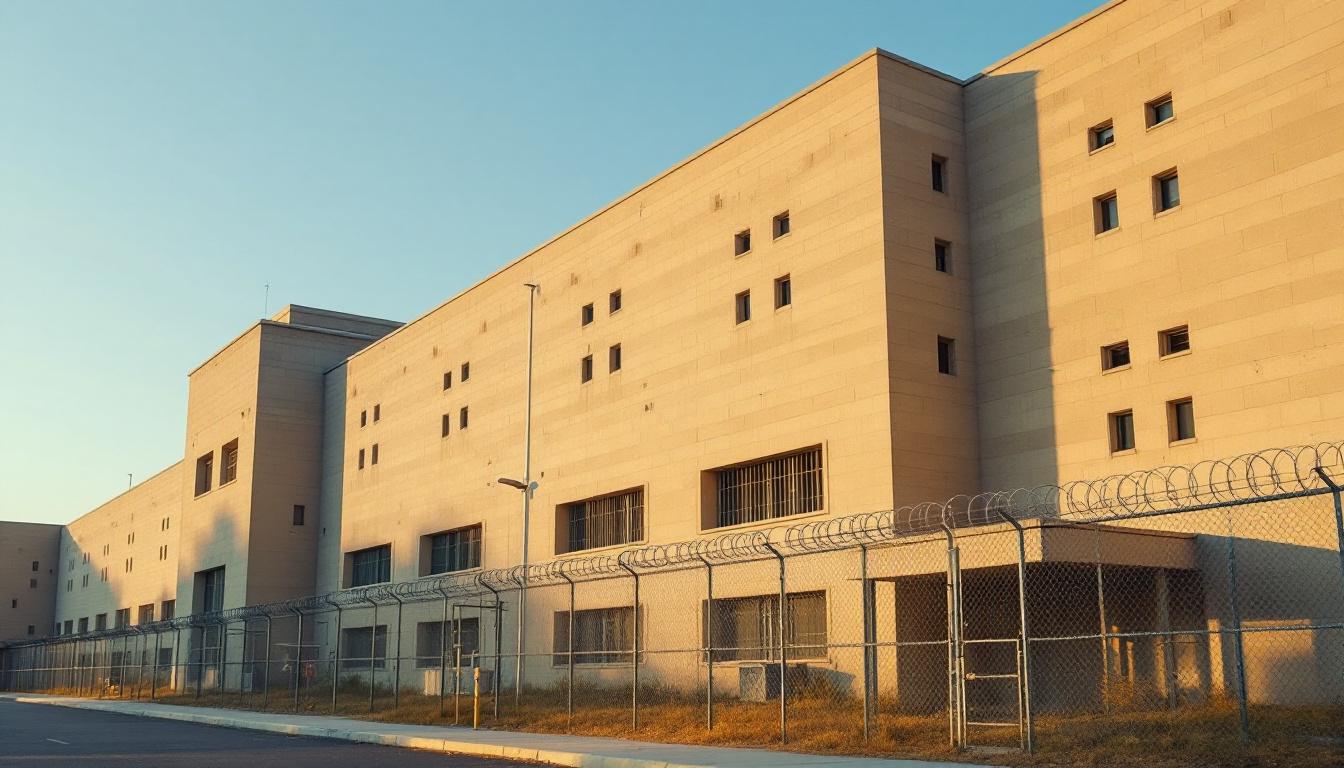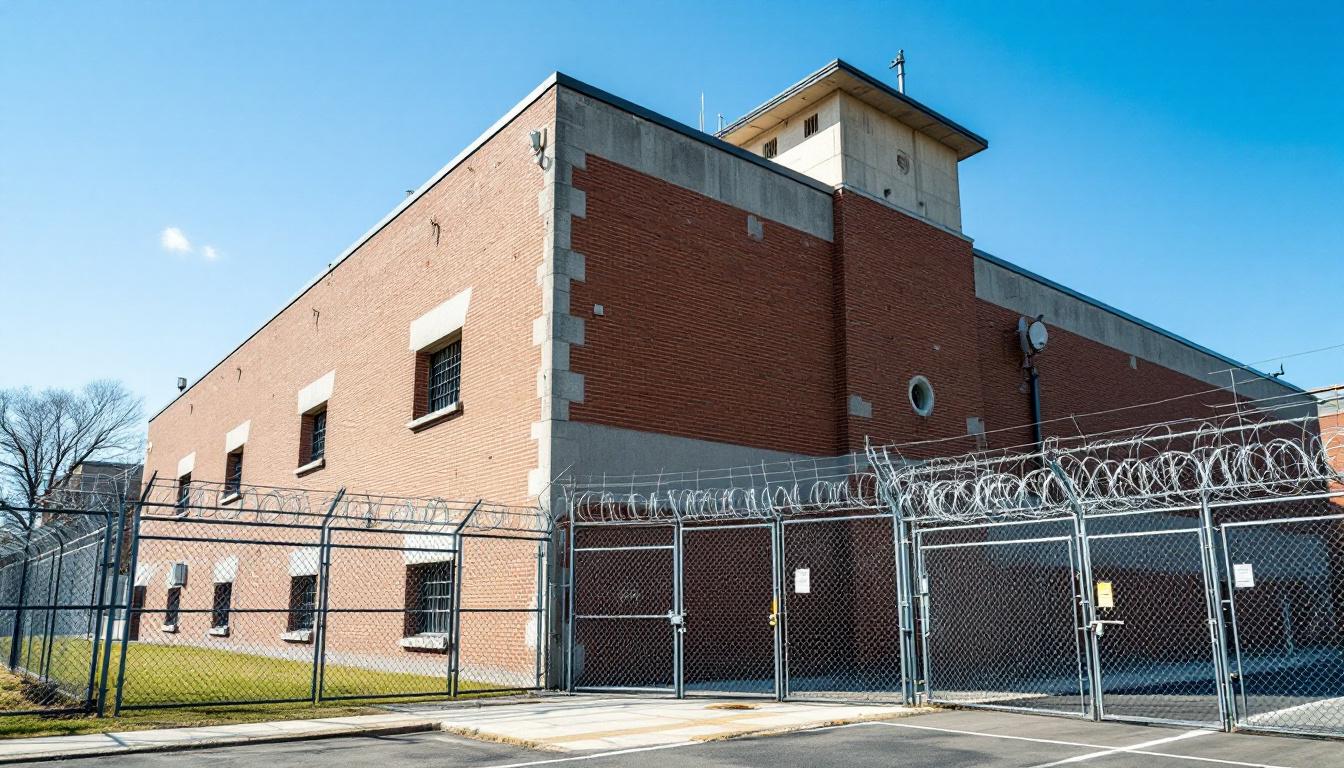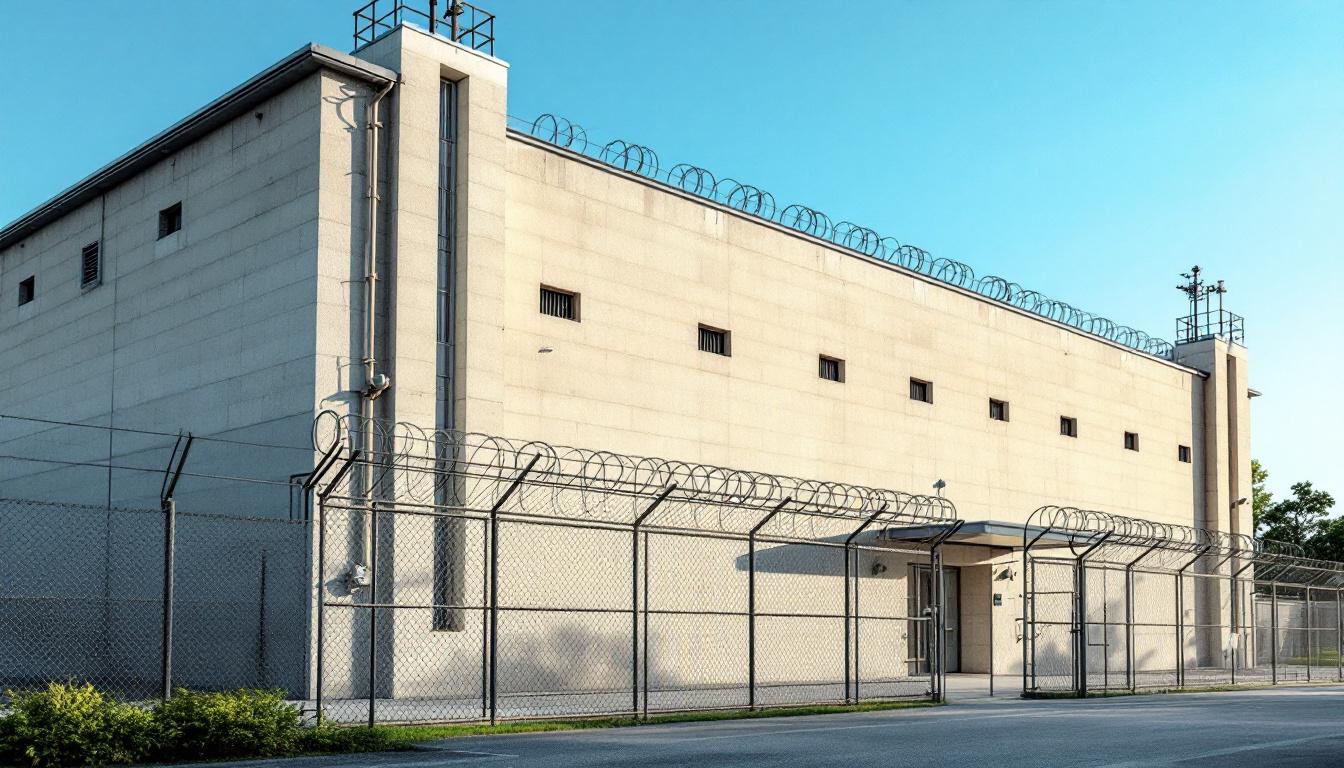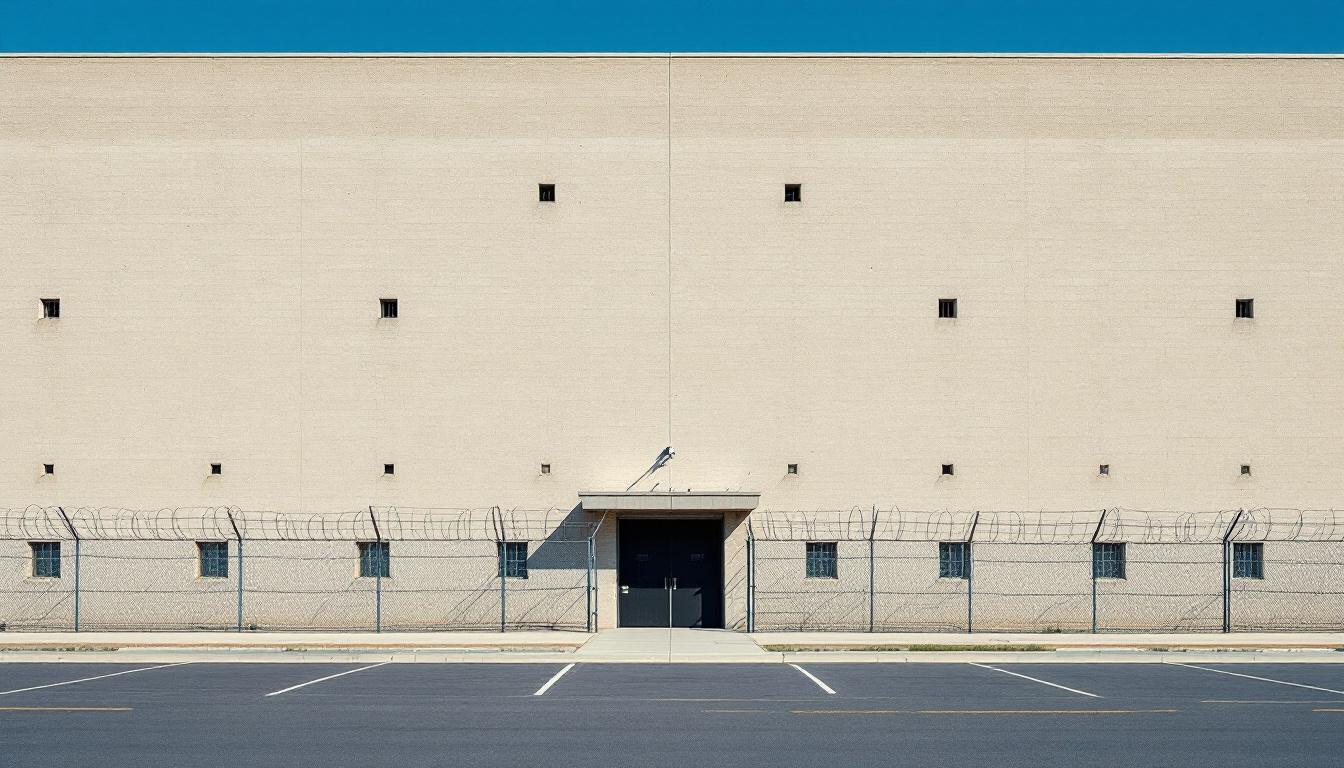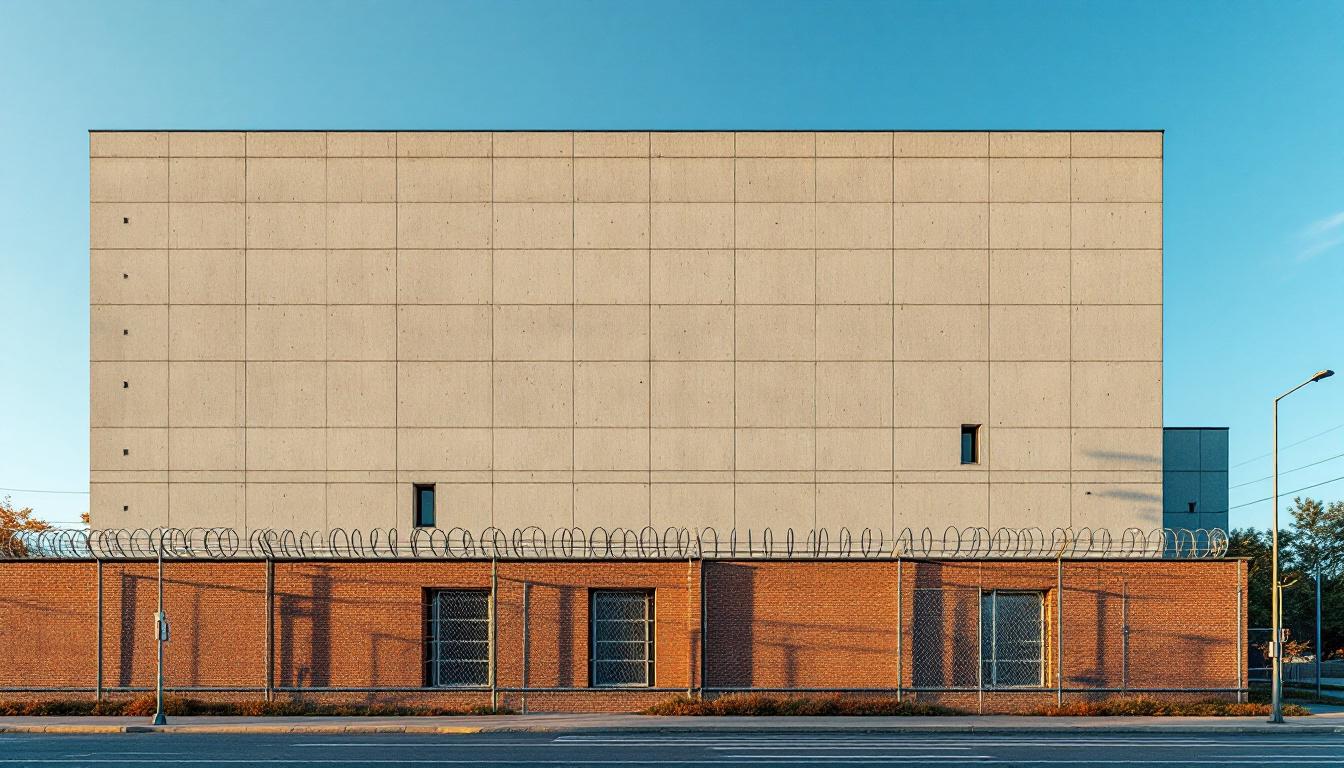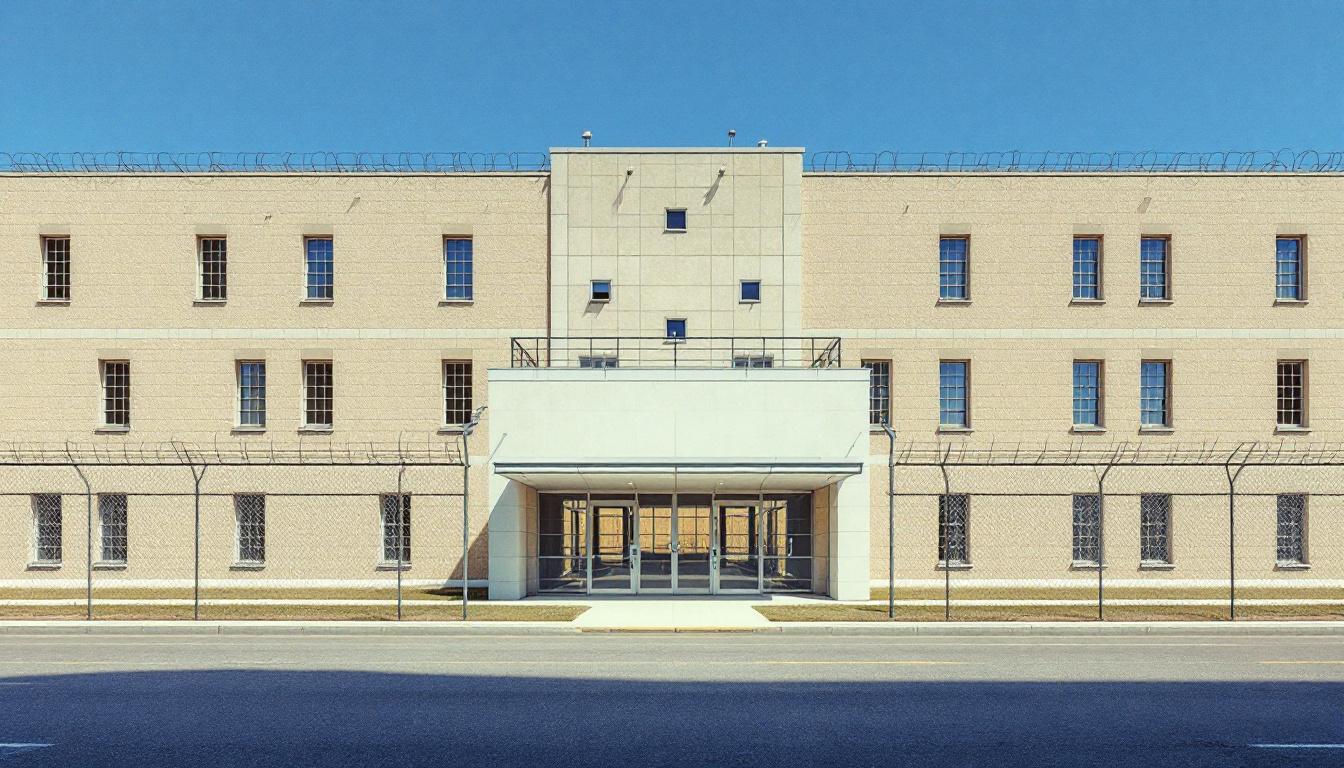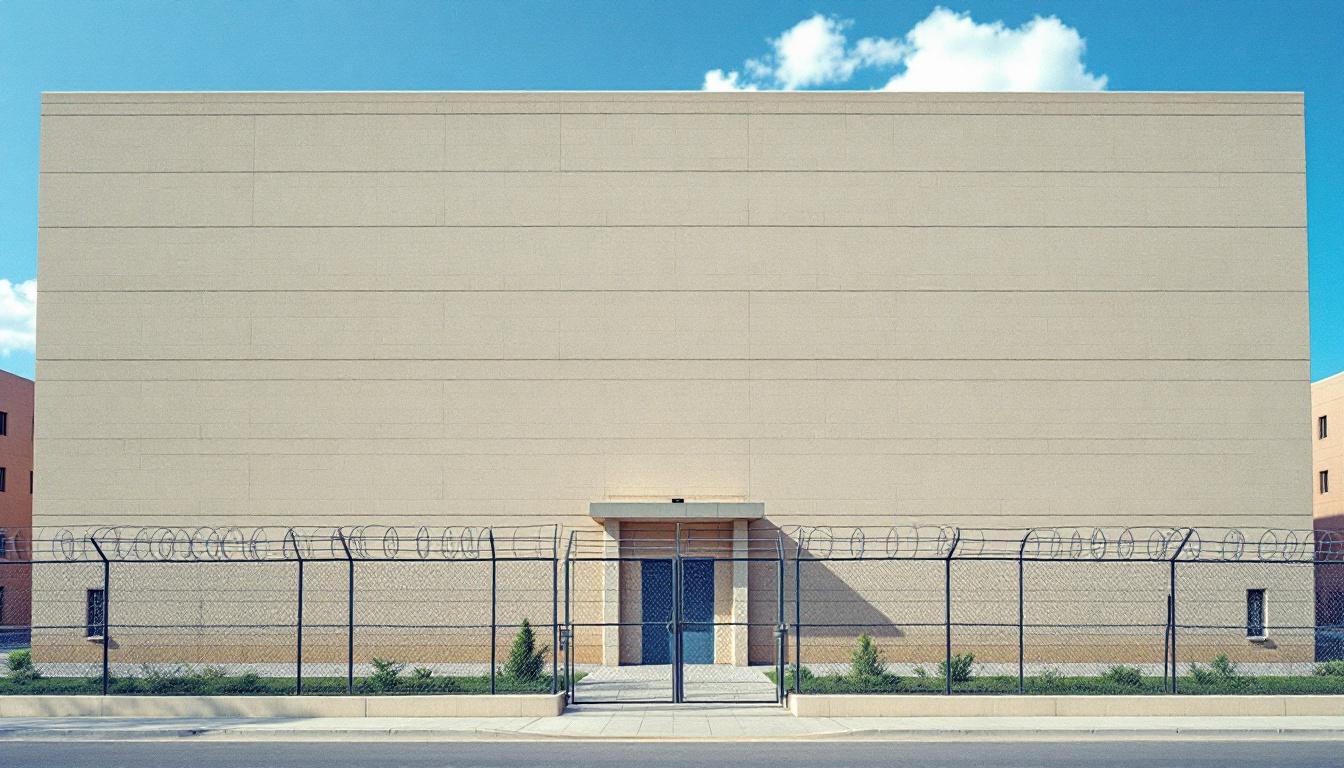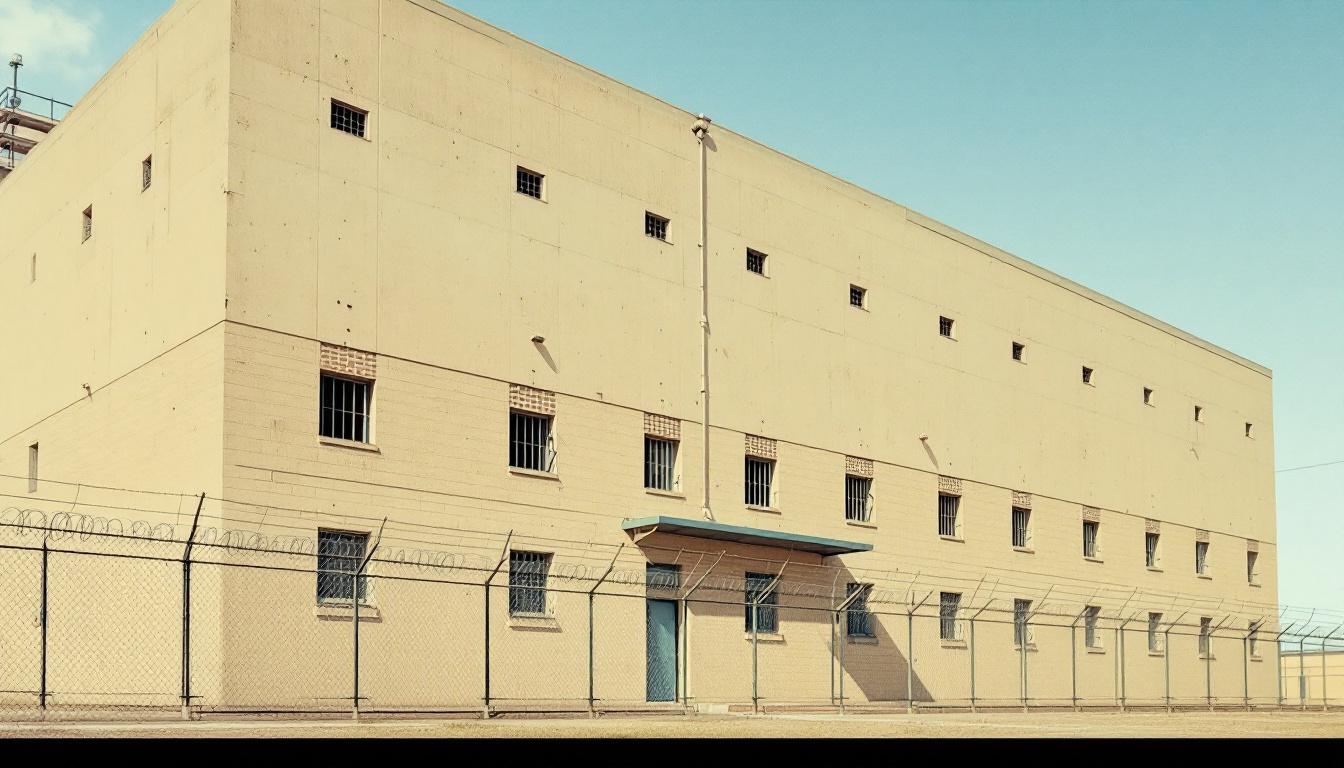
Quick Navigation
How to contact an inmate at Gilchrist County Jail
This comprehensive guide will walk you through how to connect with an inmate at Gilchrist County Jail. Follow the steps below to find an inmate and send letters and photos:
- Search for the inmate using our search tool below
- Create your account or log in to Penmate
- Write your message (up to 6,000 characters)
- Send instantly - inmates receive printed copies daily
Find an Inmate
Search for an inmate to start communicating today
Tip: You can search by first name, last name, or inmate ID number
To contact a person at Gilchrist County Jail start by searching for the person on the facility website. Perform a search by following these steps:
- Step 1: Enter their first name and last name into the search form and click "Search"
- Step 2: Locate their inmate record
- Step 3: Write down their Inmate ID and any housing information provided
Important! Be sure to enter the person's full name. Nicknames should not be used.
How to Send Messages to Inmates

You can use your phone or computer to send emails, letters, and photos to an inmate. Messages are sent electronically to inmate tablets or kiosks at the facility. If you would like to send a message, start by searching for an inmate at Gilchrist County Jail.
Sending Photos and Postcards

A great way to send love and support to a loved one at Gilchrist County Jail is to send photos and postcards. It only takes a few minutes to send photos from your phone and it makes a huge difference. You can also mail postcards with words of support and inspiration, or design your own postcard for special moments like birthdays and holidays.
Important! Be sure not to send any explicit photos or they may not be approved by the facility. You can also use a photo printing app like Penmate to make sure your photos are printed at the correct size (4x6 or 3x5) and are mailed according to the rules and regulations of Gilchrist County Jail.
Frequently asked questions about Gilchrist County Jail
-
How long does it take to deliver a message?
If you're sending an email message your letter is usually delivered within 24-48 hours. For messages sent via mail you should expect delivery within 3-7 days. All messages will need be approved by Gilchrist County Jail.
-
How much does it cost to send a message to Gilchrist County Jail?
You can send a message free using your phone or mail a message via USPS for the price of a $0.60 stamp and envelope. You can also purchase credits or e-stamps from services starting at $1.99.
-
What services can I use to contact an inmate at Gilchrist County Jail?
Penmate
You can use Penmate to send letters and photos to an inmate from your phone. It's an easy way to stay in touch during your loved one's incarceration. Use the inmate locator to find an inmate's location and contact information, then you can send messages within a few minutes.
Securus messaging
Securus may be another option for communicating with an inmate at Gilchrist County Jail. You can create a friends and family account and purchase credits to send messages. All messages will be reviewed and must be approved by the facility.
JPay
Some county jails and state prisons may support sending messages with JPay. You must register an account with the system, find your loved one, and purchase stamps to send messages. For some locations you can also attach photos.
Smart Jail Mail
You may also check if Smart Jail Mail is available at Gilchrist County Jail. Smart Jail Mail is operated by Smart Communications and has contracted with some state and county jails. After purchasing credits, your messages and photos are sent to the facility, printed out, and then handed out to your loved one.
-
What is the mailing address of Gilchrist County Jail?
Mailing address:
Gilchrist County Jail
9239 US-129
Trenton, FL 32693
Phone: (352) 463-3490 -
What are the visiting hours at Gilchrist County Jail?
Visiting hours at Gilchrist County Jail vary by housing unit and security level. Generally, visits are scheduled on weekends and holidays, with some facilities offering weekday visits. Contact the facility directly at (352) 463-3490 or check their website for the current visiting schedule. Visits typically last 30-60 minutes and must be scheduled in advance.
-
What items are prohibited when sending mail to Gilchrist County Jail?
Prohibited items typically include: cash, personal checks, stamps, stickers, glitter, glue, tape, staples, paperclips, polaroid photos, musical or blank greeting cards, hardcover books, magazines with staples, and any items containing metal or electronics. Only send letters on plain white paper with blue or black ink. Photos must be printed on regular photo paper (no Polaroids). Always check with Gilchrist County Jail for their specific mail policies.
-
How do I send money to an inmate at Gilchrist County Jail?
You can send money to an inmate at Gilchrist County Jail through several methods: 1) Online using JPay, Access Corrections, or the facility's approved vendor, 2) Money orders mailed directly to the facility with the inmate's name and ID number, 3) Kiosks located in the facility lobby, or 4) Over the phone using a credit or debit card. Fees vary by method, typically ranging from $2.95 to $11.95 per transaction.
-
Can I schedule a video visit with an inmate at Gilchrist County Jail?
Many facilities now offer video visitation as an alternative to in-person visits. At Gilchrist County Jail, video visits may be available through services like Penmate, Securus Video Connect, GTL, or ICSolutions. Video visits typically cost $10-20 for 20-30 minutes and must be scheduled in advance. You'll need a computer or smartphone with a camera and reliable internet connection. Contact the facility for their specific video visitation policies and approved vendors.
-
What identification do I need to visit an inmate at Gilchrist County Jail?
All visitors must present valid government-issued photo identification such as a driver's license, state ID, passport, or military ID. Minors must be accompanied by a parent or legal guardian who can provide the minor's birth certificate. Some facilities require visitors to be on the inmate's approved visitation list, which may require a background check. Contact Gilchrist County Jail for specific ID requirements and visitor approval procedures.
-
How can I find out an inmate's release date?
To find an inmate's release date at Gilchrist County Jail, you can: 1) Use the online inmate search tool if available, 2) Call the facility's records department, 3) Contact the inmate's case manager or counselor, or 4) Have the inmate provide this information during a call or visit. For privacy reasons, some facilities only release this information to immediate family members.
Facility Overview
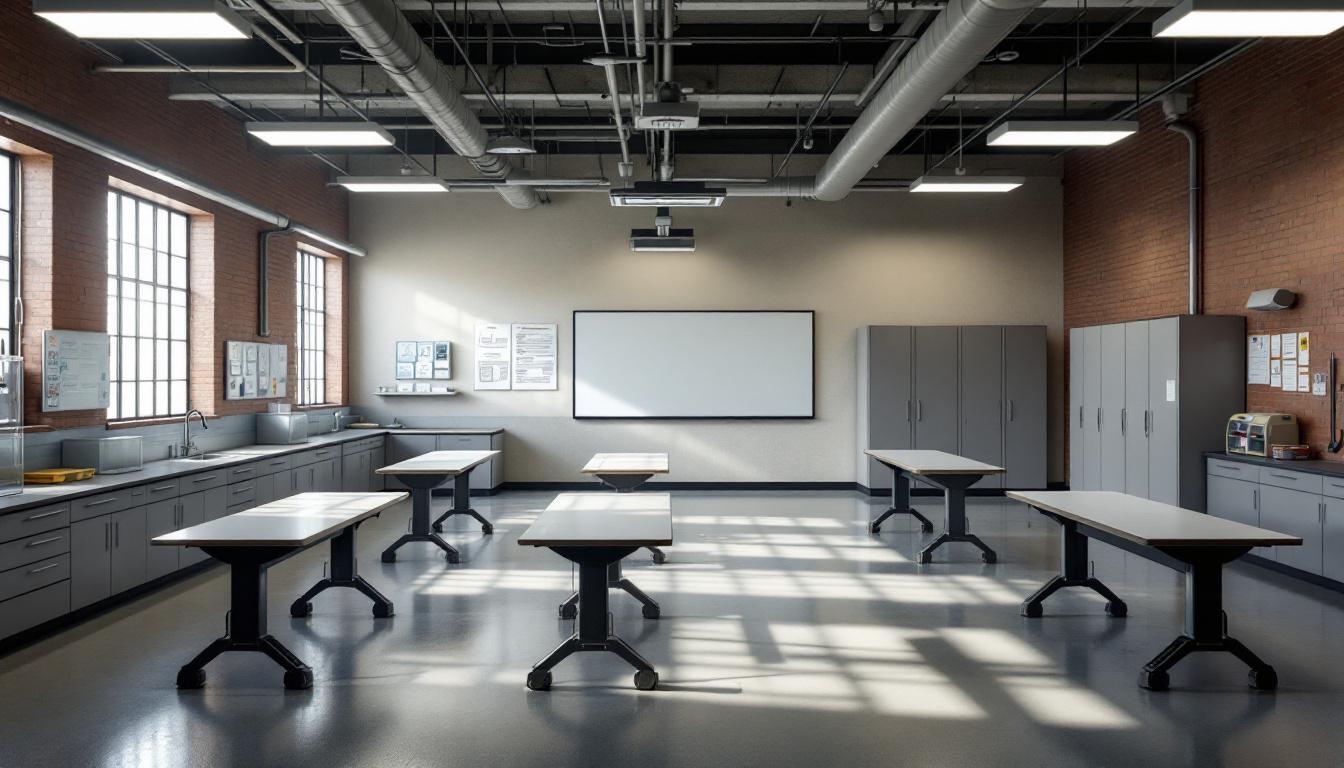
About Gilchrist County Jail
Through comprehensive programming and community partnerships, Gilchrist County Jail, FL provides essential correctional services while maintaining its commitment to both public safety and individual development. Located in Trenton, this FL correctional facility operates within Florida's broader correctional framework, serving residents throughout Gilchrist County and surrounding areas. The facility typically emphasizes a collaborative approach that connects individuals services with local resources, recognizing that effective corrections requires coordination between law enforcement, judicial systems, and community organizations.
Staff members generally work toward measurable outcomes through various rehabilitation initiatives that may include educational opportunities, substance abuse programming, and vocational preparation. The county jail typically maintains partnerships with regional service providers to offer counseling services, job readiness training, and reentry planning assistance. These collaborative efforts often focus on reducing recidivism while addressing underlying factors that contribute to criminal behavior, creating pathways for individuals to successfully reintegrate into their communities upon release.
Positioned within Florida's south region correctional network, the facility serves as an important component of Gilchrist County's public safety infrastructure. The jail generally houses individuals awaiting trial, serving shorter sentences, or participating in alternative sentencing programs. Through its community-centered approach, the facility may offer work release programs, electronic monitoring options, and other alternatives to traditional incarceration when appropriate, supporting both individual rehabilitation goals and broader community safety objectives throughout the Trenton area.
Programs & Services
A multifaceted approach to personal development characterizes the opportunities available to individuals at Gilchrist County Jail, where comprehensive programming addresses diverse needs through structured pathways toward rehabilitation and skill acquisition. The facility's philosophy centers on providing meaningful engagement that extends beyond basic incarceration, recognizing that sustainable change occurs when individuals have access to varied educational, vocational, and therapeutic resources. This holistic framework typically encompasses multiple domains of personal growth, creating an environment where participants may explore different avenues for self-improvement while addressing underlying challenges that contributed to their circumstances.
Educational advancement forms a cornerstone of the facility's offerings, with education programs designed to help individuals develop fundamental academic skills and pursue continued learning opportunities. These educational initiatives often complement vocational training components, including commercial driving (CDL) preparation that may provide practical skills for post-release employment. The structured learning environment typically allows participants to work at their own pace while receiving guidance from qualified instructors, creating pathways for individuals who may have previously encountered barriers to educational achievement.
Moreover, therapeutic and support services address the complex needs that many individuals face during their time at the facility. Substance abuse treatment opportunities often provide evidence-based interventions designed to help participants understand and address addiction-related challenges through counseling and group sessions. The facility may also offer work release opportunities that allow eligible individuals to maintain employment connections while serving their sentences, along with mentoring programs that connect participants with positive role models. Additionally, music programs often serve as creative outlets that promote emotional expression and community building, contributing to the comprehensive support network available to individuals seeking positive change during their incarceration.
Daily Life & Visitation
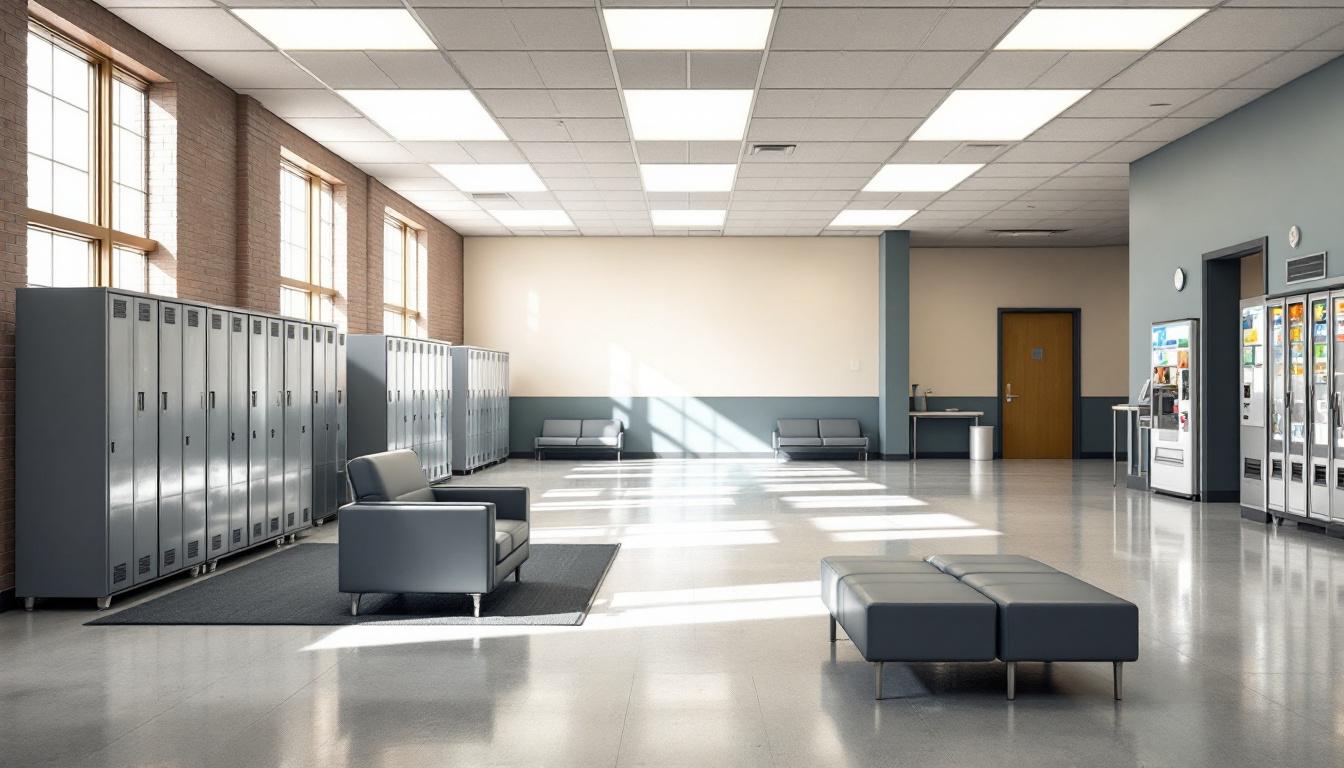
The steady rhythm of institutional schedules now governs every aspect of life for individuals housed within the Gilchrist County Jail, where structured routines typically begin before dawn with morning counts and preparation for the day ahead. Residents regularly navigate a carefully orchestrated series of activities that include designated meal times, housing unit maintenance responsibilities, and scheduled programming sessions that offer structure and purpose throughout their stay. These daily patterns generally revolve around security procedures and facility operations, with individuals adapting to the predictable flow of institutional life while maintaining connections to their personal goals and family relationships.
Living accommodations within the facility typically consist of shared housing units where individuals may be assigned based on classification levels and security considerations. The dormitory-style or cell-based arrangements usually include basic furnishings and personal storage space, with residents often sharing common areas for dining and recreational activities. Moreover, individuals generally have access to commissary services where they can purchase approved personal items, snacks, and hygiene products, helping them maintain some degree of personal choice within the institutional environment.
Structured programming schedules often include educational opportunities, substance abuse counseling, and work assignments that may involve kitchen duties, facility maintenance, or laundry services, providing individuals with productive ways to spend their time while developing valuable skills. Whereas recreation periods typically offer access to outdoor exercise areas, indoor fitness equipment, and organized activities that promote physical wellness and social interaction among residents. Family connections remain vital through scheduled visitation periods and telephone privileges, allowing individuals to maintain important relationships and receive emotional support from loved ones during their incarceration, which often proves essential for successful reintegration into the community upon release.
Ready to Connect?
Start communicating with your loved one today
Search for an Inmate
